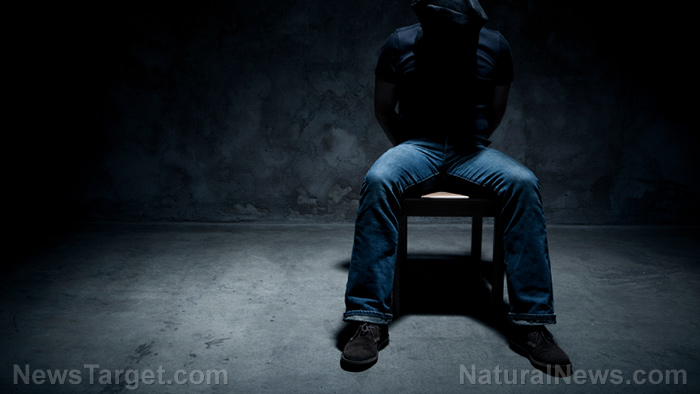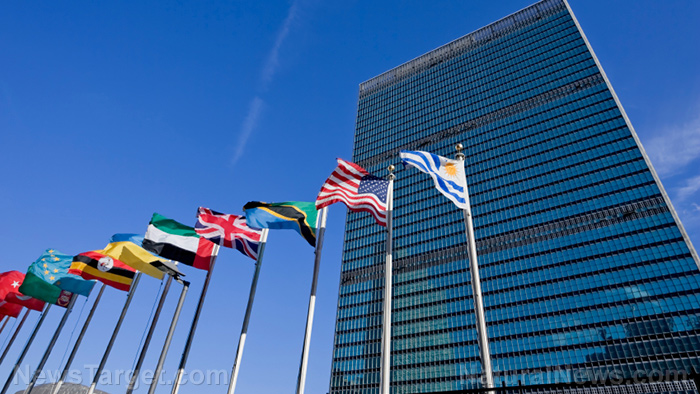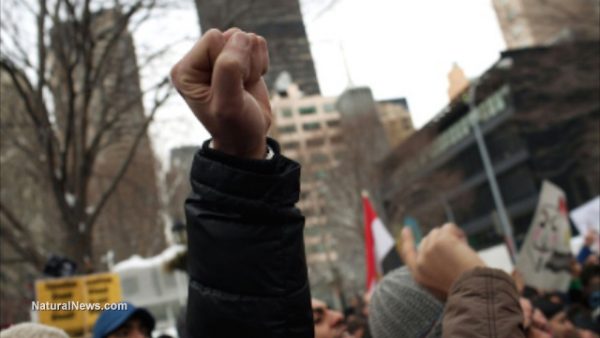 Parler
Parler Gab
Gab
- Dave Portnoy, founder of Barstool Sports, criticizes U.S. officials over potential TikTok ban.
- Portnoy expresses concerns about the impact on content creators and businesses using the app.
- The proposed ban is linked to national security concerns over the Chinese ownership of TikTok.
- Some U.S. lawmakers support the ban, citing privacy and data security risks.
- Debate highlights tensions between government regulations and free speech on social media platforms.
Portnoy’s fiery critique
In a two-minute video posted to X (formerly Twitter), Portnoy lambasted U.S. officials for their handling of the TikTok ban, arguing that it disregards the economic and cultural significance of the platform. “If the U.S. government bans TikTok, it’s just more proof they don’t give a f–k about the American people at all. Like, they have no clue what’s going on,” Portnoy said. “They’re detached from reality. The amount of people – businesses, creators, individuals, whatever you wanna say – who earn a living through TikTok, they have no clue; so just to strip these people of their livelihoods overnight because why?” Portnoy dismissed the government’s primary justification for the ban – concerns over Chinese disinformation and data collection – as hypocritical. “Listen, if people are too dumb to check where they’re getting information that is important in the first place – what, the U.S. government doesn’t do disinformation? There’s fake s–t everywhere you go,” he said. The Barstool founder also expressed skepticism about the ban’s effectiveness, suggesting that it would only push users toward other platforms with similar risks. “I’m more worried about American government disinformation at this point than the Chinese. Let’s take one thing at a time,” he added.The Supreme Court’s decision and its implications
The Supreme Court’s 9-0 ruling upheld a congressional law passed in April 2024, which required TikTok to divest from its Chinese parent company, ByteDance, or face a ban. The court rejected arguments from TikTok and its users that the ban violated First Amendment rights, siding with the government’s assertion that the app poses a national security threat. TikTok has denied these allegations, claiming it has implemented robust measures to protect user data. The company also argued that divesting within the law’s 120-day timeline was impossible. Despite the ruling, outgoing President Joe Biden announced he would not enforce the ban during his final hours in office, leaving the decision to his successor, President-elect Donald Trump. Trump, who initially supported banning TikTok during his first term, has since reversed his stance, citing concerns about stifling free speech and empowering rival platforms like Facebook. “Without TikTok, you can make Facebook bigger, and I consider Facebook to be an enemy of the people,” Trump said in March 2024.What happens next?
If the ban takes effect as scheduled, TikTok’s 170 million U.S. users will be redirected to a website explaining the ban when they attempt to access the app. The platform’s future in the U.S. now hinges on Trump’s actions after his inauguration on Monday. Trump could choose to enforce the ban, leading to a gradual decline in TikTok’s presence as app stores remove it and updates cease. Alternatively, he could issue an executive order to suspend the ban, buying time for a potential U.S. buyer to acquire the platform. Meanwhile, frustrated TikTok users have begun migrating to alternative platforms, including RedNote (Xiaohongshu), a Chinese app that has seen a surge in U.S. downloads. However, experts warn that RedNote poses even greater privacy risks than TikTok.A broader debate over free speech and privacy
The TikTok ban has reignited debates over free speech and data privacy in the digital age. Advocacy groups like Free Press and PEN America have argued that the ban sets a dangerous precedent for government censorship of online platforms. “Banning TikTok in this way sets a dangerous precedent that could pave the way to future government interventions against online speech,” said Free Press Policy Counsel Yanni Chen. As the clock ticks down to Sunday, the fate of TikTok in the U.S. remains uncertain. For millions of users and creators, the ban represents not just the loss of a platform, but a potential erosion of their ability to connect, create and thrive in the digital economy. Whether Trump will intervene to “save” TikTok – and what that might mean for the broader landscape of free speech and privacy – remains to be seen. Sources include: NYPost.com SkyNews.com FreePress.netABSURD: UN calls for widespread adoption of digital ID systems to combat climate change
By Belle Carter // Share
Climate change fanatics want to bankrupt the entire world for little to no reward
By News Editors // Share
A PULPIT for POLITICS: Bishop Budde’s woke sermon at the National Prayer Service sparks outrage
By Willow Tohi // Share
Governments continue to obscure COVID-19 vaccine data amid rising concerns over excess deaths
By patricklewis // Share
Tech giant Microsoft backs EXTINCTION with its support of carbon capture programs
By ramontomeydw // Share
Germany to resume arms exports to Israel despite repeated ceasefire violations
By isabelle // Share










